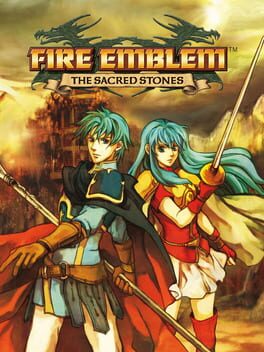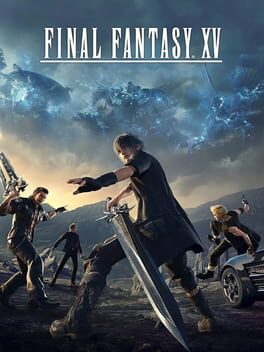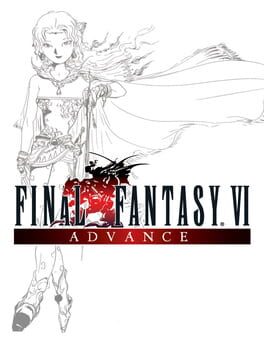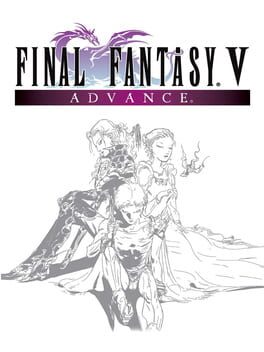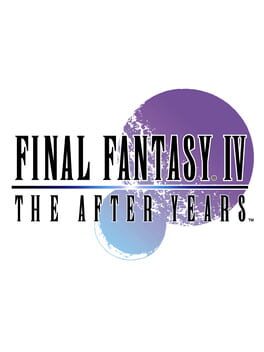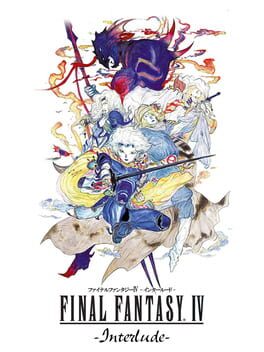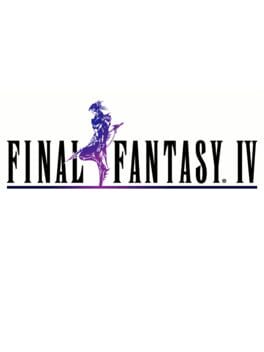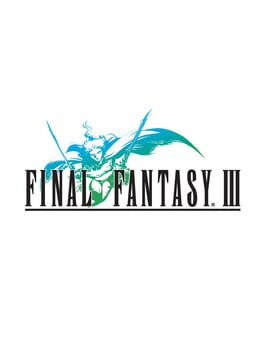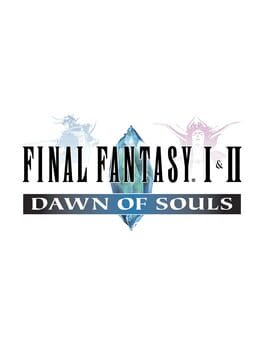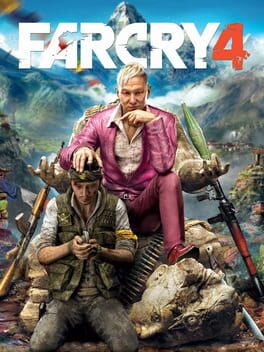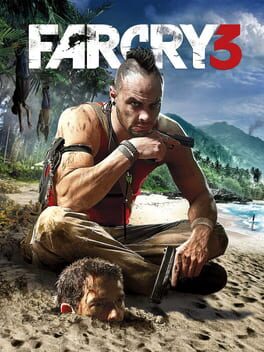EuphoriaGremlin
One of the most accessible entry points to the Fire Emblem franchise, but it comes with a few foibles that might put established fans off.
Like many Fire Emblem games, our story here is centred around some heroic folk having to resist oppression and deal with a great big fantasy bust-up. In this case we take command of the twin scions of Renais, Eirika and Ephraim. The pair escape the invasion of their home by an evil empire and rally forces across the world to fight back, as well as investigating what caused their once-allies to turn so bad. The overall narrative's never really the draw in Fire Emblem though - it's all about the character writing! It's reasonably good stuff, and taking the time to do multiple playthroughs to find all the different interactions is as rewarding and satisfying as ever. The twins at the core of the story are a bit Game-of-Thronesy though, if you get my drift, and their interactions are just on the side of too uncomfortable.
The general gameplay is the usual Fire Emblem fare. It's a tactics RPG, so we've got a big grid around which we move our units, paying attention to terrain and the series' typical weapons triangle to make sure that you've the best chance each turn of winning your battles and not losing your units. Of course, this is Fire Emblem, so when I say "losing" a unit I mean that they die; yep, we've got permadeath as per the series' wont, and it's part of what makes any entry in the franchise brilliant for stat-obsessed weirdos who are happy to plan every turn meticulously and then reset through furious tears because one unit died (hi, it's me, I'm the problem, it's me). However, The Sacred Stones upsets some fans because it lets you level grind units in a repeatable dungeon; I personally love this because it helps alleviate some of the challenge, making the entire game more accessible. It is optional though, so you don't have to engage with it.
Like many Fire Emblem games, our story here is centred around some heroic folk having to resist oppression and deal with a great big fantasy bust-up. In this case we take command of the twin scions of Renais, Eirika and Ephraim. The pair escape the invasion of their home by an evil empire and rally forces across the world to fight back, as well as investigating what caused their once-allies to turn so bad. The overall narrative's never really the draw in Fire Emblem though - it's all about the character writing! It's reasonably good stuff, and taking the time to do multiple playthroughs to find all the different interactions is as rewarding and satisfying as ever. The twins at the core of the story are a bit Game-of-Thronesy though, if you get my drift, and their interactions are just on the side of too uncomfortable.
The general gameplay is the usual Fire Emblem fare. It's a tactics RPG, so we've got a big grid around which we move our units, paying attention to terrain and the series' typical weapons triangle to make sure that you've the best chance each turn of winning your battles and not losing your units. Of course, this is Fire Emblem, so when I say "losing" a unit I mean that they die; yep, we've got permadeath as per the series' wont, and it's part of what makes any entry in the franchise brilliant for stat-obsessed weirdos who are happy to plan every turn meticulously and then reset through furious tears because one unit died (hi, it's me, I'm the problem, it's me). However, The Sacred Stones upsets some fans because it lets you level grind units in a repeatable dungeon; I personally love this because it helps alleviate some of the challenge, making the entire game more accessible. It is optional though, so you don't have to engage with it.
2016
Despite the criticism, I think Final Fantasy XV remains a strong entry into the franchise and one that, should you manage to connect with it emotionally, can be incredibly cathartic.
Our protagonist this time around is Noctis and his 3 bodyguards, Gladiolus, Prompto and Ignis. Noctis is due to be married so he and his buddies take off on one last boyband road trip, but as they do the empire of Niflheim invade his home, kill his dad and nick his family's magic crystal. Noctis suddenly finds himself forced into a quest for a set of magic weapons in order to win back the crystal and save the world. One of the criticism leveled at XV is that its story isn't well-told and that's true to a degree; the choice to make XV an open world adventure does take a lot of the impetus out of the narrative. Worse yet, the open world falls apart in the final third and we're shoehorned onto a very linear track for the last hours of the game which feels jarring.
But what fun those preceding hours are! Much of the game is spent driving around in the gang's car before hopping out to fight enemies or do quests - or, yes, to do fishing, the most important activity in an RPG. There's a lot to do in XV's world but equally important are the moments spent outside, just driving with Noctis' friends. This is where so much of the incredible character work in XV comes out; the four friends are exceptionally well-written and realised, and engaging with them is a joy. Whether you can connect to the cast like this - and whether you can accept sinking into the peace of driving and enjoy the atmosphere - will go a long way to defining your final opinion of XV. For me the strength of writing absolutely carries XV, although I'm also still a fan of the real-time combat and brilliant world-building.
Our protagonist this time around is Noctis and his 3 bodyguards, Gladiolus, Prompto and Ignis. Noctis is due to be married so he and his buddies take off on one last boyband road trip, but as they do the empire of Niflheim invade his home, kill his dad and nick his family's magic crystal. Noctis suddenly finds himself forced into a quest for a set of magic weapons in order to win back the crystal and save the world. One of the criticism leveled at XV is that its story isn't well-told and that's true to a degree; the choice to make XV an open world adventure does take a lot of the impetus out of the narrative. Worse yet, the open world falls apart in the final third and we're shoehorned onto a very linear track for the last hours of the game which feels jarring.
But what fun those preceding hours are! Much of the game is spent driving around in the gang's car before hopping out to fight enemies or do quests - or, yes, to do fishing, the most important activity in an RPG. There's a lot to do in XV's world but equally important are the moments spent outside, just driving with Noctis' friends. This is where so much of the incredible character work in XV comes out; the four friends are exceptionally well-written and realised, and engaging with them is a joy. Whether you can connect to the cast like this - and whether you can accept sinking into the peace of driving and enjoy the atmosphere - will go a long way to defining your final opinion of XV. For me the strength of writing absolutely carries XV, although I'm also still a fan of the real-time combat and brilliant world-building.
2001
Final Fantasy's first foray into the PS2 era, and it's an incredible one. In many ways a distinct and weird entry into the franchise, X stands out amidst its fellow Final Fantasy games with an unique charm and flair.
In a change from the norm for Final Fantasies, this time we follow a jock! Tidus is a professional sportsball player in the technofuture city of Zanarkand when he's pulled through a vortex and wakes up in the land of Spira where it turns out his home was destroyed thousands of years ago. He winds up tagging along with Yuna, a summoner on a quest to defeat a monster called Sin that terrorizes Spira, joining in her pilgrimage across the world.
X has a lot of aspects that I simply adore. For one, Spira is the most imaginative and frankly weird worlds in a Final Fantasy to date; it captures that feeling that fantasy as a genre thrives on in a way that other more familiar genre settings can't hope to match. I also love its hyper-traditional turn-based battling, which ditches the series' long-standing ATB system in favour of a far more old-fashioned option with clear turn ordering on the side that can be manipulated through skills. I'm also a massive fan of the summons in this game, which are essentially VIII's Guardian Forces done right.
In a change from the norm for Final Fantasies, this time we follow a jock! Tidus is a professional sportsball player in the technofuture city of Zanarkand when he's pulled through a vortex and wakes up in the land of Spira where it turns out his home was destroyed thousands of years ago. He winds up tagging along with Yuna, a summoner on a quest to defeat a monster called Sin that terrorizes Spira, joining in her pilgrimage across the world.
X has a lot of aspects that I simply adore. For one, Spira is the most imaginative and frankly weird worlds in a Final Fantasy to date; it captures that feeling that fantasy as a genre thrives on in a way that other more familiar genre settings can't hope to match. I also love its hyper-traditional turn-based battling, which ditches the series' long-standing ATB system in favour of a far more old-fashioned option with clear turn ordering on the side that can be manipulated through skills. I'm also a massive fan of the summons in this game, which are essentially VIII's Guardian Forces done right.
2000
A sublime work of art, Final Fantasy IX is my personal favourite in the series.
Our story here follows the thief Zidane who opens the game with an unusual heist: he plans to steal away the Alexandrian Princess Garnet from the evil Queen Brahne. The escape gets complicated however, sending the pair, and the rest of the party, on a journey across the world to try and stop her empire building. But that's not all IX is about. IX is a true character drama, one with multiple central points of view, but ultimately it's about humanity and self-realisation. This core message is part of what helps elevate IX above other Final Fantasy games; it's a beautifully explored and expressed sentiment that evolves within our cast fluidly over the course of the game.
I'm also a fan of the return to a traditional fantasy land with IX; our dalliances with more modern settings were fun, but IX feels like a love letter to the series' roots. We're in a lush fantasy world, we've got an evil queen, a slimy wizard, a massive fantasy war, and a princess on the run. What could be more authentically Final Fantasy than that?
Our story here follows the thief Zidane who opens the game with an unusual heist: he plans to steal away the Alexandrian Princess Garnet from the evil Queen Brahne. The escape gets complicated however, sending the pair, and the rest of the party, on a journey across the world to try and stop her empire building. But that's not all IX is about. IX is a true character drama, one with multiple central points of view, but ultimately it's about humanity and self-realisation. This core message is part of what helps elevate IX above other Final Fantasy games; it's a beautifully explored and expressed sentiment that evolves within our cast fluidly over the course of the game.
I'm also a fan of the return to a traditional fantasy land with IX; our dalliances with more modern settings were fun, but IX feels like a love letter to the series' roots. We're in a lush fantasy world, we've got an evil queen, a slimy wizard, a massive fantasy war, and a princess on the run. What could be more authentically Final Fantasy than that?
1999
The oddball entry in the PS1-era Final Fantasies, VIII tends to have a polarising reception. I'm afraid I fall into the less happy category; to me VIII is an absolute mess of a game.
We follow Squall, a student at Balamb Garden, a school for training child mercenaries. He, along with some fellow students, are sent off on a mission to aid some rebels but it doesn't take long before the world erupts into war and Squall is caught in the centre of it. Because it's about child soldiers, there's a powerful, evocative system of abuse baked into the core of VIII's story, which makes it all the worse that the game barely ever remembers that and instead focuses on its absolutely moronic cast of characters. Every member of your party is insufferable, from Squall's constant self-loathing whines to Zell's pure unfiltered idiocy, and watching them bumble through the game's events is a source of genuine frustration.
Making things worse is one of the most obtuse set of mechanics ever tried in a JRPG. I'm all for experimentation, but when you push the boundaries sometimes you hit a stumbling block and VIII is that. You have a bewildering amount of menus to manage to get by in VIII; you've got your Guardian Forces which are summons you equip to characters to augment their stats, but they're also capable of learning skills which need to be assigned to your characters as well. You need to grind enemies to find the loot they drop since that's the only way of improving your weapons, but equally level grinding is discouraged because of the level scaling so you're caught between a rock and a hard place in that regard. Oh, and don't forget having to waste countless hours of your life drawing spell charges from enemies so you can cast spells - but don't actually cast them because doing that weakens your stats! VIII is an utter cacophany of bad decisions and attempts to reinvent the wheel.
We follow Squall, a student at Balamb Garden, a school for training child mercenaries. He, along with some fellow students, are sent off on a mission to aid some rebels but it doesn't take long before the world erupts into war and Squall is caught in the centre of it. Because it's about child soldiers, there's a powerful, evocative system of abuse baked into the core of VIII's story, which makes it all the worse that the game barely ever remembers that and instead focuses on its absolutely moronic cast of characters. Every member of your party is insufferable, from Squall's constant self-loathing whines to Zell's pure unfiltered idiocy, and watching them bumble through the game's events is a source of genuine frustration.
Making things worse is one of the most obtuse set of mechanics ever tried in a JRPG. I'm all for experimentation, but when you push the boundaries sometimes you hit a stumbling block and VIII is that. You have a bewildering amount of menus to manage to get by in VIII; you've got your Guardian Forces which are summons you equip to characters to augment their stats, but they're also capable of learning skills which need to be assigned to your characters as well. You need to grind enemies to find the loot they drop since that's the only way of improving your weapons, but equally level grinding is discouraged because of the level scaling so you're caught between a rock and a hard place in that regard. Oh, and don't forget having to waste countless hours of your life drawing spell charges from enemies so you can cast spells - but don't actually cast them because doing that weakens your stats! VIII is an utter cacophany of bad decisions and attempts to reinvent the wheel.
1997
While it might be a bit passe to say Final Fantasy VII is incredible, I'm still going to say it. Following in the footsteps of VI before it, VII continues the series' departure from traditional fantasy and into more overt science-fantasy territory, not to mention it continues to place an even greater emphasis on the writing of its story, characters, and world. We play as Cloud, a mercenary who joins the eco-terrorist group AVALANCHE in their fight against the machinations of tyrannical megacorp Shinra. I don't think it's an exaggeration to call VII's opening - indeed its entire first act in the sprawling, grimy metropolis of Midgar - one of the most iconic sequences in videogame history. Sure there are typos and odd gimmicks to proceedings, but you can still feel the weight of VII's narrative today and as the party escape from the city and set off on the trail of the murderous supersoldier Sephiroth it's easy to find yourself entirely absorbed.
Still, the move to the PS1 brought some changes to the way Final Fantasy was presented, and not all of them are entirely positive. This is the slowest Final Fantasy yet, especially given that Square went wild with the visuals as the game moved to polygonal models instead of sprites, and getting your head around materia can be a little daunting at first. It's also a game filled with distractions and side content which can pull the pace of the game down a bit, but I wouldn't say they're to the detriment of the game; instead it all adds to the sense of a living world, but one teetering on the edge of a breakdown. There's a tension to everywhere you go that only heightens as the game advances.
The short answer here is that while FFVII won't be for everyone - of course it won't, JRPGs can be a bit of a niche like - it remains a stupendously strong entry into the franchise.
Still, the move to the PS1 brought some changes to the way Final Fantasy was presented, and not all of them are entirely positive. This is the slowest Final Fantasy yet, especially given that Square went wild with the visuals as the game moved to polygonal models instead of sprites, and getting your head around materia can be a little daunting at first. It's also a game filled with distractions and side content which can pull the pace of the game down a bit, but I wouldn't say they're to the detriment of the game; instead it all adds to the sense of a living world, but one teetering on the edge of a breakdown. There's a tension to everywhere you go that only heightens as the game advances.
The short answer here is that while FFVII won't be for everyone - of course it won't, JRPGs can be a bit of a niche like - it remains a stupendously strong entry into the franchise.
One of the most revered Final Fantasy entries, and for good reason. From the iconic opening in which we're introduced to Terra, the brainwashed servant of the Gestahlian Empire forced to try and destroy the mining town of Narshe, VI is immediately gripping. What unfolds after is a swirling character drama as a huge cast come together to try and stop Gestahl and, of course, the maniacal mage Kefka. This is by far the most ambitious story Square had yet attempted in the franchise, and it pays off in a seriously big way.
It's also the beginning of a change for Final Fantasy. This is, I think, perhaps the earliest example of what I would consider a "modern" Final Fantasy. Much of the fantasy trappings are replaced by quasi-steampunk elements, and the story unfolds in a neat, semi-linear fashion with a tightly controlled movement of characters in and out of your party helping to direct you around the world. It's refreshing, honestly, but it's helped of course by the sheer strength of the writing.
And yes, the opera sequence is still incredible.
It's also the beginning of a change for Final Fantasy. This is, I think, perhaps the earliest example of what I would consider a "modern" Final Fantasy. Much of the fantasy trappings are replaced by quasi-steampunk elements, and the story unfolds in a neat, semi-linear fashion with a tightly controlled movement of characters in and out of your party helping to direct you around the world. It's refreshing, honestly, but it's helped of course by the sheer strength of the writing.
And yes, the opera sequence is still incredible.
A underrated gem of the SNES era, Final Fantasy V had the bad luck to be stuck between both the first new-gen Final Fantasy and one of the most lauded entries in the series (not to mention having no English release at the time), but is absolutely deserving of your time. Even now it's still a bit of a black sheep in the franchise. Part of this might be down to the plot and characters, which begin with the goofy Bartz who stumbles across a wayward princess and a strange old man who seems to have arrived on this world by asteroid. From the off V is a lot more zany and odd than many Final Fantasy titles and that sense of humour and quirkiness never leaves even as the plot gets more serious and the world is threatened by one of the franchise's great unsung villains, Exdeath.
If you only need one reason alone to play V though it's the job system. While III might have introduced the series to the mechanic, V is where it was iterated on and perfected. Each character begins as a freelancer but you quickly amass a huge array of varied jobs that you can switch between at will, and mastering them allows you to move class-specific skills around and create some truly monstrous cross-class fighters. The depth to V's job system is stunning, and one of the best reasons to return to this game.
If you only need one reason alone to play V though it's the job system. While III might have introduced the series to the mechanic, V is where it was iterated on and perfected. Each character begins as a freelancer but you quickly amass a huge array of varied jobs that you can switch between at will, and mastering them allows you to move class-specific skills around and create some truly monstrous cross-class fighters. The depth to V's job system is stunning, and one of the best reasons to return to this game.
A rare Final Fantasy direct sequel, The After Years follows the adventures of Cecil and Rosa's absurdly named son, Ceodore. Just like in IV, the second moon rises and a grand threat is launched against the elemental crystals that maintain the balance of the world. Yes, history is repeating itself and not just in-universe; much of The After Years is an iteration on IV in a damning and unsubtle way and winds up feeling like a weak imitation of its predecessor. Entire plot points, dungeons, and bosses are repeated with zero variation from IV, rendering a vast swathe of The After Years pointless.
I suppose the main draw is that we get to meet the old cast again? Most of them are still functionally identical to how they worked in IV, but our party is supplemented by the new kids, who are... well, they're basically often so close as to the regular lot as to be the same. The thing I liked about The After Years was its episodic chapters, a holdover from its original mobile release, but it's not worth the price of admission at all. I don't think The After Years is dreadful, but it's certainly pointless and that's as big a crime to some.
I suppose the main draw is that we get to meet the old cast again? Most of them are still functionally identical to how they worked in IV, but our party is supplemented by the new kids, who are... well, they're basically often so close as to the regular lot as to be the same. The thing I liked about The After Years was its episodic chapters, a holdover from its original mobile release, but it's not worth the price of admission at all. I don't think The After Years is dreadful, but it's certainly pointless and that's as big a crime to some.
Only included on the Final Fantasy IV: Complete Collection, Interlude is intended to be a bridging narrative between the events of IV and its sequel, The After Years. The main plot development here is that... the cast have kids? I mean given After Years concerns these kids I figured that was obvious. There's a minor bit of focus on Rydia, who seems to have lost all her summons, but honestly the story is nonexistent.
Essentially a short forced rewalk through some of IV's most obnoxious dungeons, Interlude genuinely has negative value. You'd think that all of the parts of IV being included in one collection might be an opportunity to have some save file transfer shenanigans but no, you have to have some crap version of part of IV's party for this adventure so it even feels anticlimactic after the highs of IV's ending. Absolutely worthless.
Essentially a short forced rewalk through some of IV's most obnoxious dungeons, Interlude genuinely has negative value. You'd think that all of the parts of IV being included in one collection might be an opportunity to have some save file transfer shenanigans but no, you have to have some crap version of part of IV's party for this adventure so it even feels anticlimactic after the highs of IV's ending. Absolutely worthless.
2011
Final Fantasy's first foray in the SNES era, IV seems largely to have been a chance for Square to show off, showcasing as much of the step up into the new generation as possible. While II and III were experiments with the narrative and gameplay of Final Fantasy respectively, IV feels like the culmination of the process, pushing both at once.
Our story follows the dark knight Cecil, a warrior of the kingdom of Baron who suddenly finds his conscience amidst a wave of militaristic expansion. However, his newfound morals earn him exile from his home, beginning a massive adventure as he gathers allies and journeys around the various kingdoms of his world attempting to stop Baron - and its ally, the mysterious and powerful sorcerer Golbez - from destroying them. IV is renowned for its writing and while I do enjoy it, I'd temper the enthusiasm a little. It all unfolds in a very odd way; essentially each character gets their arc dealt with in one chapter of the game at a time before the game considers them resolved and moves onto the next. This is fine, but it's not quite how a good story really unfolds; a better writer would interweave this together across the entire narrative.
Gameplay is pure Final Fantasy, so it's all wandering a grand world, turn-based battling, and managing your ragtag party through all the challenges thrown their way. IV is the debut of longtime series staple ATB which purports to add a bit more dynamism to the combat, but it's not going to convince turn-based battle skeptics. We get to field a party of up to 5 fighters at once, so enemy mobs get to be bigger and more challenging as a result; you can't choose your party until the very end of the game however, so you have to manage with whoever you're given to work with at the time which can help give some added challenge to sections of the game.
IV is feeling its age without a shadow of a doubt, and I think it's easy to poke holes in it so long after the fact, but I was still impressed and immersed at the world it presents.
Our story follows the dark knight Cecil, a warrior of the kingdom of Baron who suddenly finds his conscience amidst a wave of militaristic expansion. However, his newfound morals earn him exile from his home, beginning a massive adventure as he gathers allies and journeys around the various kingdoms of his world attempting to stop Baron - and its ally, the mysterious and powerful sorcerer Golbez - from destroying them. IV is renowned for its writing and while I do enjoy it, I'd temper the enthusiasm a little. It all unfolds in a very odd way; essentially each character gets their arc dealt with in one chapter of the game at a time before the game considers them resolved and moves onto the next. This is fine, but it's not quite how a good story really unfolds; a better writer would interweave this together across the entire narrative.
Gameplay is pure Final Fantasy, so it's all wandering a grand world, turn-based battling, and managing your ragtag party through all the challenges thrown their way. IV is the debut of longtime series staple ATB which purports to add a bit more dynamism to the combat, but it's not going to convince turn-based battle skeptics. We get to field a party of up to 5 fighters at once, so enemy mobs get to be bigger and more challenging as a result; you can't choose your party until the very end of the game however, so you have to manage with whoever you're given to work with at the time which can help give some added challenge to sections of the game.
IV is feeling its age without a shadow of a doubt, and I think it's easy to poke holes in it so long after the fact, but I was still impressed and immersed at the world it presents.
2006
A full remake of Final Fantasy III. Other than the full visual overhaul, one of the main draws to this release of III is the massively expanded story and writing compared to the Famicom original. Originally starring a quartet of lowly onion knights on a journey to defend the world against the destruction of magical crystals, in this version our party now have names, unique designs, and actual personalities and as such get far more chances to react and chatter about events as they happen. This is nice but not crucial, especially as the cast are largely shallow archetypes rather than actual characters - but perhaps that's fitting for a game that also fails to characterise its supporting cast or villains beyond bland tropes.
If Final Fantasy II was Square experimenting with narrative, III is the team doing the same with the gameplay. III is the first game in the franchise to feature a fully realised job system, allowing players to flip each member of the party between different classes in order to deal with changing situations and to ensure maximum tactical flexibility. I love job systems, and III's is a wonderfully solid take on the format. However, it's frustrating that some dungeons force you into or away from specific classes, robbing the player of agency. While that might be ok for some players, this combined with the dreadful storytelling is a deathblow for III to me; it works but it's hardly a shining jewel of the NES-era FInal Fantasy games.
If Final Fantasy II was Square experimenting with narrative, III is the team doing the same with the gameplay. III is the first game in the franchise to feature a fully realised job system, allowing players to flip each member of the party between different classes in order to deal with changing situations and to ensure maximum tactical flexibility. I love job systems, and III's is a wonderfully solid take on the format. However, it's frustrating that some dungeons force you into or away from specific classes, robbing the player of agency. While that might be ok for some players, this combined with the dreadful storytelling is a deathblow for III to me; it works but it's hardly a shining jewel of the NES-era FInal Fantasy games.
A remake of both Final Fantasy and Final Fantasy II. By far the earliest versions of these games that I would personally recommend as playable although much of this review will roughly apply to any versions of these games released after this one as well.
The original Final Fantasy is one of the great Ur-JRPGs, a genre-defining classic. You created your party of adventurers, choosing from across a small range of different classes each with their own quirks to how they play, you drop down into a quintessentially "fantasy" medieval-style world. After rescuing a princess from a renegade knight the party find themselves thrust into a plot involving elemental fiends terrorising the world, although it spirals out from there in some surprising ways. The gameplay is purest old-fashioned JRPG turn-based battling, with the classes you chose at the start determining much of how you'll engage with battles, not to mention how difficult the game is. There's a ton of replayability hidden in the class system, inviting players to keep trying different setups, although the fluctuating difficulty might put some off. Provided you're playing one of the many remakes of Final Fantasy, I think this first entry in the franchise holds up marvelously well.
Final Fantasy II is a much more plot-oriented sequel; it's clear that this was an attempt to flex the team's writing muscles and experiment with a more long-form and driven storyline. Our principal party of Firion, Guy, and Maria (plus a rotating 4th slot) joins a band of plucky rebels waging war against an evil emperor - it's all very fantasy Star Wars. Final Fantasy II is most remembered for its utterly cracked leveling system that on paper tells players to use individual skills in order to get better at them (in theory an intuitive and somewhat ahead of its time system) but in practice can be broken merely by looking too hard at it, turning the game into a wildly skewed mess. II was also innovative in its dialogue system, which offers players a tree of "remembered" prompt words, all of which can be used on every NPC to get some sort of new response and clue as to where you need to go next. It's another idea well ahead of its time but wonky in execution and I think that sums up II. It's very nearly a good game, but remains the black sheep of the franchise - still, failing because you've tried too many new ideas at once is preferable to not trying anything new at all.
The original Final Fantasy is one of the great Ur-JRPGs, a genre-defining classic. You created your party of adventurers, choosing from across a small range of different classes each with their own quirks to how they play, you drop down into a quintessentially "fantasy" medieval-style world. After rescuing a princess from a renegade knight the party find themselves thrust into a plot involving elemental fiends terrorising the world, although it spirals out from there in some surprising ways. The gameplay is purest old-fashioned JRPG turn-based battling, with the classes you chose at the start determining much of how you'll engage with battles, not to mention how difficult the game is. There's a ton of replayability hidden in the class system, inviting players to keep trying different setups, although the fluctuating difficulty might put some off. Provided you're playing one of the many remakes of Final Fantasy, I think this first entry in the franchise holds up marvelously well.
Final Fantasy II is a much more plot-oriented sequel; it's clear that this was an attempt to flex the team's writing muscles and experiment with a more long-form and driven storyline. Our principal party of Firion, Guy, and Maria (plus a rotating 4th slot) joins a band of plucky rebels waging war against an evil emperor - it's all very fantasy Star Wars. Final Fantasy II is most remembered for its utterly cracked leveling system that on paper tells players to use individual skills in order to get better at them (in theory an intuitive and somewhat ahead of its time system) but in practice can be broken merely by looking too hard at it, turning the game into a wildly skewed mess. II was also innovative in its dialogue system, which offers players a tree of "remembered" prompt words, all of which can be used on every NPC to get some sort of new response and clue as to where you need to go next. It's another idea well ahead of its time but wonky in execution and I think that sums up II. It's very nearly a good game, but remains the black sheep of the franchise - still, failing because you've tried too many new ideas at once is preferable to not trying anything new at all.
2014
Following on from the success of Far Cry 3 was no doubt a daunting task; it makes a kind of corporate sense then that Far Cry 4 is largely a reskin of its predecessor but not necessarily a terrible one. Our central character this time is Ajay, who arrives in his homeland of Kyrat, a mountainous Himalayan country, only to find himself roped into a rebellion against the local warlord Pagan Min.
Unfortunately the writing is nowhere near as good as in 3. Min is a surprisingly fun villain - almost as unhinged as Vaas, but in a different way - but the rest of the cast are bland and stoic, and the way the plot resolves is deeply frustrating.
Still. the gameplay remains decent. It's a Ubisoft game so all the staples are here - towers, bandit camps, the works - and the game still relies on the same stealth-FPS loop as 3, but there's still something fun and compelling about moving that gameplay loop to a Himalayan mountain play area.
Unfortunately the writing is nowhere near as good as in 3. Min is a surprisingly fun villain - almost as unhinged as Vaas, but in a different way - but the rest of the cast are bland and stoic, and the way the plot resolves is deeply frustrating.
Still. the gameplay remains decent. It's a Ubisoft game so all the staples are here - towers, bandit camps, the works - and the game still relies on the same stealth-FPS loop as 3, but there's still something fun and compelling about moving that gameplay loop to a Himalayan mountain play area.
2012
Far Cry 3 certainly knows how to do an opening. The game begins with a bunch of rich kids enjoying the high life on a tropical island paradise before being abruptly cut short as we're captured by bloodthirsty pirates who plan to sell us into slavery. We escape into the wilds of the island, where a local tribe of rebels take us in, initiating us into their warrior caste and unleashing us back out against the pirates.
The premise might sound a bit banal but Far Cry 3's strengths lie in how it rips us back to reality and reminds us that our situation is hostile and grim, with expertly done mood-whiplash moments as the game flips from exploring a beautiful island to harrowing and gut-wrenching story beats.
The writing is clearly the main draw here, but the FPS gameplay is no slouch either. Far Cry 3 wants you to engage with it stealthily, with an emphasis on exploring the island and hunting animals to gain experience and craft equipment to make your character into a Rambo-style powerhouse, and it's a satisfying loop.
It does fall apart a little bit in the latter half of the game unfortunately. The difficulty ramps up slightly more than I think is comfortable, the island loses some of its lustre once you've explored it, and a generic final villain muscles onto the scene and makes for a bland encounter. Still, for fans of strong writing, Far Cry 3 remains a great game.
The premise might sound a bit banal but Far Cry 3's strengths lie in how it rips us back to reality and reminds us that our situation is hostile and grim, with expertly done mood-whiplash moments as the game flips from exploring a beautiful island to harrowing and gut-wrenching story beats.
The writing is clearly the main draw here, but the FPS gameplay is no slouch either. Far Cry 3 wants you to engage with it stealthily, with an emphasis on exploring the island and hunting animals to gain experience and craft equipment to make your character into a Rambo-style powerhouse, and it's a satisfying loop.
It does fall apart a little bit in the latter half of the game unfortunately. The difficulty ramps up slightly more than I think is comfortable, the island loses some of its lustre once you've explored it, and a generic final villain muscles onto the scene and makes for a bland encounter. Still, for fans of strong writing, Far Cry 3 remains a great game.
